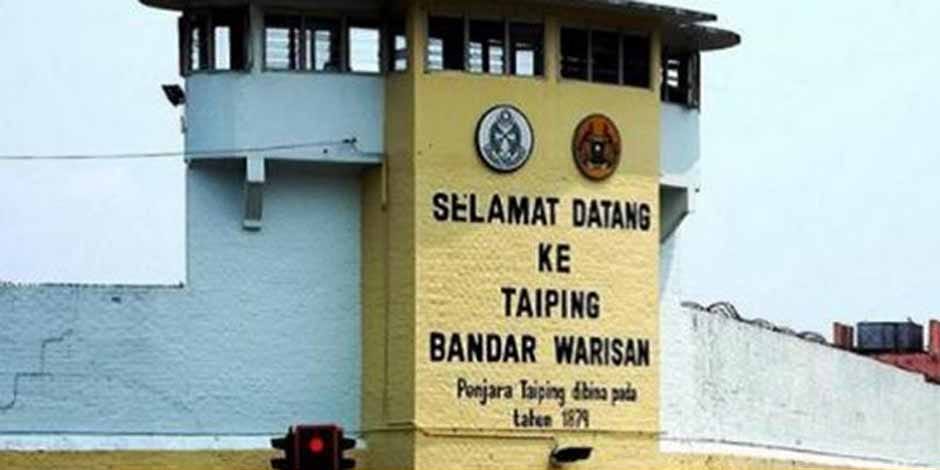Reforming Malaysia prison system : Addressing overcrowding, brutality, and accountability
P Ramasamy
Malaysia’s prison system is in dire need of reform. Overcrowding, inadequate facilities, and systemic neglect have created conditions ripe for violence, abuse, and human rights violations.
The recent incident at Taiping Prison, where over 100 prisoners on remand were allegedly assaulted by wardens, underscores the urgent need for action.
Systemic failures
Prison overcrowding is a chronic issue, exacerbated by delays in court trials, excessive use of remand detention, and outdated laws that deny prisoners timely legal recourse.
These conditions create tensions not only among prisoners but also between prisoners and wardens, as seen in Taiping.
The alleged assault—carried out by wardens armed with tear gas, batons, and helmets—led to the death of one prisoner and severe injuries to others.
While the specific circumstances remain unclear, it is reported that prisoners had requested to be relocated to a hall within the prison compound.
This request, if true, highlights the dire conditions they endure daily.
The prison authorities’ refusal to permit family visits further obscures the full extent of injuries and raises questions about transparency and accountability.
Accountability
Family members of the victims, supported by the Urimai Party, have lodged police reports, demanding answers and justice.
The case has now been taken over by Bukit Aman police, indicating its seriousness.
Yet, the silence from key government figures is deafening. The Minister of Home Affairs, Saifuddin Ismail Nasution, has yet to address the allegations, let alone announce any plans for an independent investigation.
This silence is particularly troubling given the government’s professed commitment to reform.
The PH-led coalition, which came to power on promises of transparency and accountability, appears to be neglecting fundamental domestic issues in favor of international engagements.
Even Prime Minister Anwar Ibrahim, once a victim of police brutality himself, has not weighed in on this critical matter.
Reform or risk?
The Taiping prison assault should not be dismissed as an isolated incident but rather viewed as a symptom of the larger systemic failures within Malaysia’s prison system.
Overcrowding, inhumane conditions, and insufficient oversight have turned the nation’s prisons into ticking time bombs.
Riots and outbreaks, common in similarly overcrowded prisons worldwide, are an inevitable outcome if these issues remain unaddressed.
Recommendations
The government must prioritize a comprehensive overhaul of the prison system. This includes:
1. Establishing a Royal Commission of Inquiry (RCI): An independent RCI should investigate the conditions of prisons nationwide, the causes of overcrowding, and instances of abuse. Unlike the futile RCI on Pulau Batu Puteh, this initiative would directly impact the lives of thousands and restore public confidence in the justice system.
2. Improving Prison Facilities: The construction of new prisons and rehabilitation of existing ones must be expedited to alleviate overcrowding.
3. Judicial Reforms: Address delays in court trials, expand access to legal aid, and reduce reliance on remand detention.
4. Transparent Investigations: The Taiping incident must be thoroughly investigated, and those responsible for any misconduct held accountable.
Conclusion
Malaysia’s prison system reflects broader challenges in governance and human rights. The Taiping assault is not just a tragedy for the individuals involved but a wake-up call for the nation. If the government continues to ignore these issues, it risks further eroding public trust and compromising its reformist mandate. Only through immediate and decisive action can Malaysia ensure justice, dignity, and humane treatment for all within its prison system.
Press Conference on Facebook:
https://www.facebook.com/MyPerai/videos/1132355588634542
P. Ramasamy
Former professor of political economy at Universiti Kebangsaan Malaysia (UKM) and former deputy chief minister of Penang.
Subscribe Below:




Therre is nothing novel nor new about what gos on in prisons anywhere save for a few natios like Swede, Danmark, Norway, Finland and Japan. If Ramasamy was sincere about the problems he would have raised it a long time ago.
I fear like many that the problems complained of here are a form of Slacktivism and Leverage to launch Ramasamy's otherwise lacklustre political party.
Its a pity that the suffering of people behind bars should be used by Urumai and Ramasamy in particular to try to make themselves relevant.
If Ramasamy and his party were half as interested in the plight of prisoners, they would have been busy preparing affidavits to buttress the complaints and file a formal complaint with the prison authorities and launch proceeedings in the appropriate courts before writing self servig articles which do nothing for the prisoners.
Shades of the Hindraf riot in November 2007.